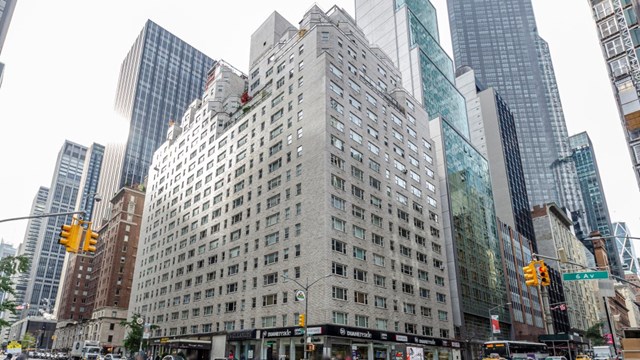With today's uncertain economy and the prices of everything from gas to insurance on the rise, maintenance increases may be on the horizon for thousands more co-op and condo owners this year. Shelling out money is never a pleasure, but those increases do not always have to be painful. With a board that plans ahead and shareholders who are keyed in to the issues, those rising rates can be a simple, necessary adjustment, not a financial headache. The key, the experts say, is communication.
The decision to raise maintenance fees is seldom an easy one, but more often than not, the increases are unavoidable, incited by circumstances beyond the board's control. "Lately, it's been energy increases for oil, gas, electric or steam," says Dan Wurtzel, chief operating officer for Cooper Square Realty in Manhattan. "Insurance is also a factor as are real estate taxes and the increased cost of labor."
According to David Khazzam of PRC Management, "Increases stem from unforeseen circumstances and increased operating costs, as well as a need to bolster reserves." Most board finances are subject to specific guidelines - including reserves, which have suggested minimum levels. Those levels are important to maintain for financial stability. "Your budget might be running in the black, but if the reserves are below the recommended level, you might have to raise maintenance fees to replenish those reserves."
Increased maintenance fees differ from assessments in large part because of purpose. "Assessments are used to cover non-operating expense items such as capital improvements," Wurtzel says.
Khazzam says that's the way it should be. "Special assessments should only be used for one-time capital projects."
The decision to increase the maintenance fees is made over several months - meaning that the need for increases should never be a surprise to the board or, subsequently, to the residents. Budget planning is usually done in the last quarter of the fiscal year, Wurtzel says. By the time a decision needs to be made on increases, the board will have had nine months of history under their belts to know what they will need to do. The budget should be secured 60 days in advance of the end of the year, when the increases are usually made.
"A reasonable board is in touch with its finances and shouldn't have to surprise its residents," Khazzam says.
The process of informing residents of maintenance increases should begin even before a final decision is made. In fact, the informational process already should be part of a well-executed communications plan. "Two or three times a year, the board should advise constituents of the financial health of the building," Khazzam says. "Let them know that insurance rates have gone up. Keep them up to date on general financial conditions. The more you inform your constituents of the reasons behind the increase, the better off you'll be." As a rule of thumb, Khazzam likes to give shareholders and condo owners at least a month's warning in terms of education.
Wurtzel agrees, adding, "The last thing you want to do is just hit people with an increase without letting them know why the building's expenses have gone up. Let them know insurance has gone up. Let them know you've had increases in payroll for union employees. Then when you let them know, it won't be the first time they've heard about the problems."
Letting people know about the increase ahead of time can help mitigate the potential budget crunch for residents, too. Sometimes the increase can prove to be too large for some co-op or condo owners. "Unfortunately, it's a fact," Wurtzel says. "Letting them know as far in advance as possible will help, and will allow them to get assistance if necessary." One such form of assistance for people living on a fixed income is the Senior Citizens Rent Increase Exemption Program, which can help renters, shareholders and condo owners get the help they need to maintain financial stability and stay in their apartments. "It's a place they can go for assistance," says Wurtzel.
When the time comes to make the announcement for the maintenance increases, as much information as possible should be included. "When you send out the letter, the increase has to be explained in detail," Wurtzel says. It's important, too, to have documentation on hand in case questions or, in extreme cases, opposition to the increase arises. The financial statements can be an important tool in that respect, giving the board the ability to show the numbers behind the decision-making process. "It's a judgement call on how much info to include in announcing an increase." Wurtzel says. "But it's better to err on the side of too much info than too little."
From time to time, opposition to increases may indeed arise. "It's bound to happen," Khazzam says. "You're always going to encounter opposition, people wondering if a cost could have been saved or if the increase is too much."
Some boards will time their increases to occur either way in advance or way after the annual shareholders' meeting so that no bad feelings linger.
But, he adds, "in a well-run co-op with constituents who are aware of the situation and the reasons behind it, it doesn't happen that often. If people know the causes, they will understand it better. As long as the board feels they have done enough research, cut costs where they needed to and feel justified with the increases, then it should be okay. I've never really encountered it as a political matter that endures."
As stressful as an increase can be for boards and residents alike, it's always best to face up to the building's financial necessities. Some boards are skittish when it comes to making the actual increase, despite knowing that the increase is a necessity, not a whim, or a cover for less-than-stellar budgeting. "Sometimes, boards base the majority of their decision-making on re-electability," Khazzam says. "But they have a fiduciary responsibility to ensure the fiscal health of the building."
Says Wurtzel, "I've seen instances when boards have deferred an increase and passed a budget with a deficit, then have had to make a significantly higher increase the following year. That's not good."
Some boards will put off making increases, "But then you compound the problem," says Khazzam. "Then you have to deal with the financial deficiencies that may have worsened over that time. Deal with a problem early and the consequences will be less."
Once the increases have been made, there is little or no hope that they can or will ever be rescinded. "There would have to be a significant change in the finances of the building for fees to go back down," Wurtzel says. "Fixed expenses drive a budget. If there's ever any one area that goes down and causes a surplus, that money is usually used to replenish reserves. The theory for decreasing fees is in place, but it just doesn't happen."
Reality, too, dictates that a fee reduction would do little good for anyone, and in fact might damage the building's finances in the long run. "Generally, a surplus is minimal. A $50,000 surplus on a $3 million budget would amount to a miniscule fraction of maintenance charges. It's just not worth it."
In the end, though, maintaining the level of service and the standards to which residents are accustomed often ends up being worth that initial financial pain. Done correctly, that pain should be minimal, a good thing for all involved.







Leave a Comment